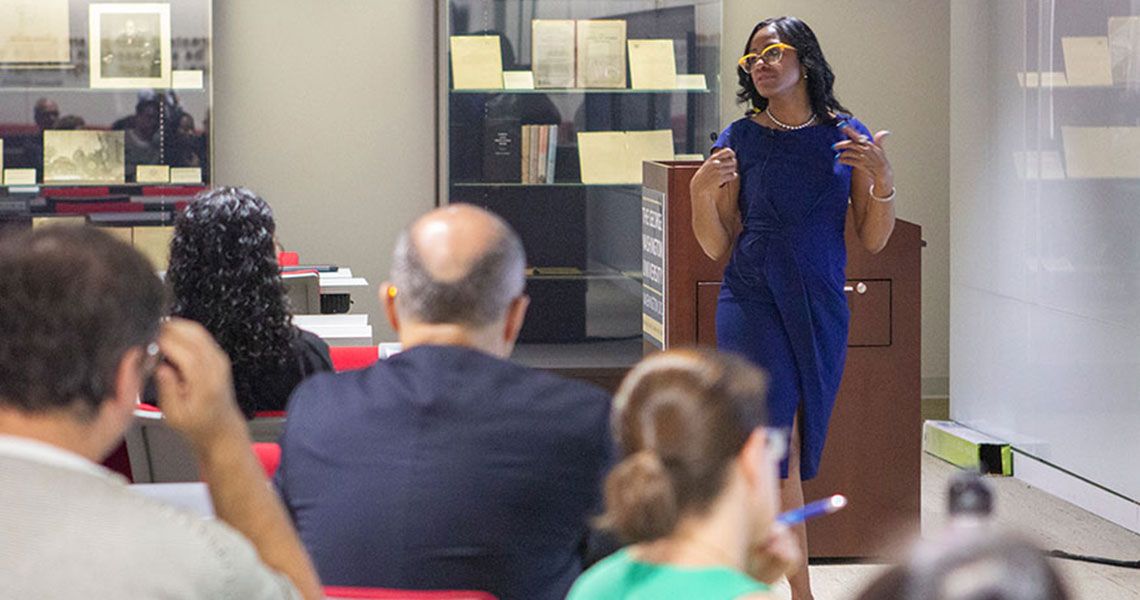A new development series aimed at furthering health equity education for educators and health care providers was launched earlier this month by the George Washington University (GW) School of Medicine and Health Sciences (SMHS) Department of Clinical Research and Leadership.
The five-month series, which runs from September to January 2020, is open to the GW community and the public. Each hour-long session occurs on the second Thursday of every month through December, with a longer series summit on Jan. 9.
The series, created by Maranda Ward, EdD, MPH, assistant professor of clinical research and leadership at SMHS, will “set people up for success to make sure they know how to facilitate discussions and talk about race and power and privilege in the classroom in a way that has both educators and students feeling safe and included in the discussion.”
Ward said the series will be open to all faculty and staff on campus, though it is primarily targeted to faculty in SMHS. The sessions also will be streamed through WebEx and archived online for those who can’t make it in person.
Some of the topics will include health disparities within and across important U.S. populations; how to address root causes of health disparities in teaching and research; and how academic medical centers can work with public health and community partners.
Ward presented the first session in the series on Sept. 12, focusing on “Framing Health Equity.” Some of the other speakers include Abby Charles, MPH, senior program manager at the Institute for Public Health Innovation; Karey M. Sutton, PhD, director of the American Association of Medical Colleges Health Equity Research Workforce; and Howard Straker, EdD, MPH, PA, director of the PA/MPH program and assistant professor of physician assistant studies at SMHS.
The final session on Jan. 9 will be more hands-on, Ward says, ensuring that attendees of prior sessions are able to take what they learned and the resources given to them and put them into practice.
That session will also include “voice equity,” Ward said, through a panel discussion featuring community members who will talk about what work they are doing in the area of health equity and projects happening on the ground where they live.
“Community partnerships are extremely important when it comes to health equity,” she said. “There are a lot of ways to talk about academic community partnerships, you can’t do this alone.”
Ward added that at the end, she wants SMHS faculty to have a “renewed sense of urgency around understanding why this is important and having the agency and capacity to act, and enact change.”



